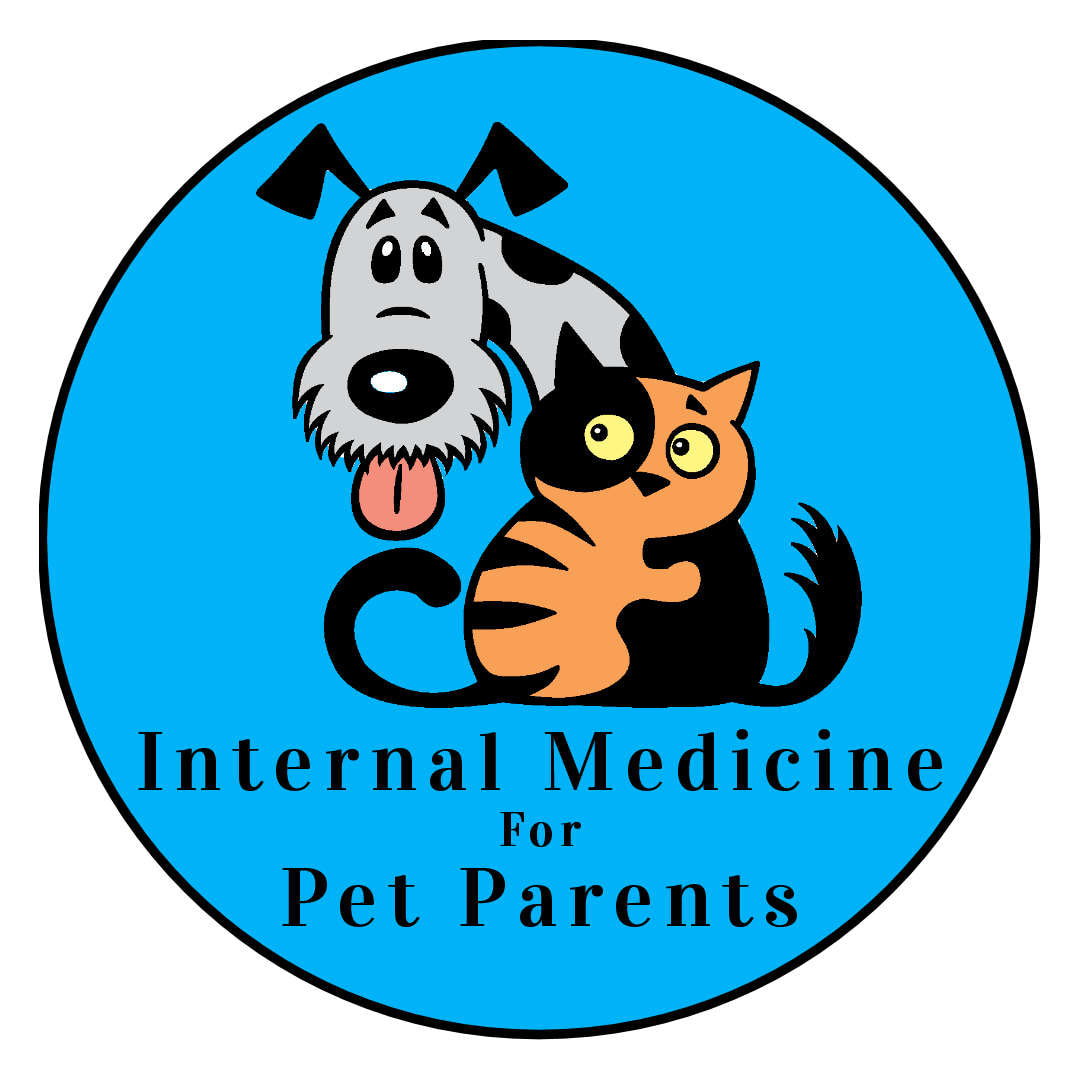The holidays stress us all out, including our pets
As a pet parent, experiencing the anxiety and helplessness of having a sick pet is scary. Having a diagnosis is a welcome relief. But, when your pet has been diagnosed with Addison’s disease (an endocrine condition where the body is unable, or ineffectively produces vital hormones) you learn it's going to be a lifetime commitment.
Most pets go on to live a long, fulfilling life, dependent on receiving the medicine they need and avoiding stressful situations. Because stress is the biologic trigger for Addison’s disease to reoccur. In healthy animals, stress triggers the release of cortisol from the adrenal glands to help the body respond. In the case of Addison's disease the body doesn't have the ability to adapt to challenges and the demands of the body are unmet. Your veterinarian likely prescribed a medication, or a combination of medications, such as Florinef (fludrocortisone), or Percorten-V (desoxycorticosteronepivalate DOCP) which are long-acting medications given intermittently as an injection. Most commonly, prednisone is prescribed as a daily oral steroid medication for the treatment of Addison’s disease. The dose is typically much lower to meet the biological needs of these pets. Who can get Addison's Disease?
It is most commonly diagnosed in dogs, although cats can be diagnosed with it too.
With the average age of diagnosis being in young adults (approx. 4 years old), pets with this condition will remain on hormone therapy for the rest of their lives. These pets on steroid replacement therapy remain at higher risk for illness in stressful situations. Because even though we are replacing these hormones, it may not be sufficient in the event of additional stress. And even for our furry family members, the holidays can be particularly stress inducing. Some pets are so sensitive that when their pet parent is stressed, they experience stress and anxiety similarly. As we approach the holidays, folded into the joy and harmony is the inevitable: stress. We’d like to help ease some of the anxiety inducing fears about your Addisonian pet, with helpful tips to help you identify warning signs and know when to seek professional help. What should you watch for?
When your pet was sick, he or she may have displayed all or some of the traditional clinical signs including; weakness, lethargy, excessive thirst, frequent urination, loss of appetite, trembling, waxing and waning of gastrointestinal upset, abdominal pain (hunched posture, tenderness to touch or lifting), vomiting, and/or diarrhea.
When faced with a stressful event, most Addisonian dogs will not have a full blown repeat hypoadrenocorticism crisis (also known as an Addisonian Crisis), but have milder symptoms. In my experience, most commonly this manifests as weakness, lethargy, or tummy troubles. If you feel that your dog is behaving differently, laying around more than usual, interacting less with human and furry family members, having a decreased appetite, or otherwise just not acting like himself or herself, it’s worth a call to your veterinarian. That said, it is very common for any dog to experience gastrointestinal upset, including bloody diarrhea, from a change in diet, eating fatty table scraps (yes, even just a little bite), stress, or serious illness. But for Addisonian dogs, it is important to investigate causes with your veterinarian before making any changes. However, as long as your dog doesn’t have any allergies or is on prescription diet, it is generally safe to offer a bland diet of boiled chicken (no skin, bones, fat or seasoning) and white rice, which is easy to digest and can settle the simplest tummy troubles. What can you do to reduce stressful situations?
You’re here, already doing it. The more you can understand the disease and prepare for events, the better for both of you.
What your dog may experience as stress depends on the individual animal. In a body without the ability to produce adrenal hormones in stress, you may see a return of the aforementioned symptoms. If a stressful event can be anticipated, your veterinarian may even preemptively increase the steroid dose. Boarding, traveling, having company over, even having a brightly decorated Christmas tree can upset a sensitive pet. You’ll want to allow a place for your pet to escape to, should they become overstimulated or overwhelmed. In contrast, for some dogs, being separated from their family is stress inducing. Without eliminating all travel for yourself and becoming a homebody, sometimes all you can do is reduce the opportunities for stress. If you are traveling, bring objects that smell like you or from home with you. If boarding, perhaps you can bring their own bed, and favorite toys or one of your personal belongings to leave with them. You know them best. Do your best to be diligent about the food they get. Something to note about your pet’s lifelong medications. There are the occasional medications that your veterinarian may instruct you to discontinue if particular side effects are seen (antibiotics for example). Sometimes, you may even be able to stop some medications, once symptoms have resolved. This does NOT apply to pets with Addison’s disease! Because with steroids you must never, ever abruptly stop giving these medications without monitoring by your veterinarian. Rather, your dog is symptom free because of the medications and it is crucial to understand that that should not be the expectation in dogs with Addison’s disease. Even when prescribed short-term steroids, they should be gradually tapered down to a smaller and smaller dose, prior to discontinuing. Because of the mechanism by which steroids work on the body, by suppressing the body’s natural adrenal hormone response, abruptly withdrawing these medications could shock the system. Ergo, it is extremely important to follow prescriptions without exception. If your veterinarian is not available, there is almost always an emergency facility to visit or a professional to consult with. When in doubt, check it out. AuthorApril Bays, CVT, VTS (ECC): April has worked in veterinary medicine since 2001, becoming a certified technician in 2007. After working relief at an emergency clinic she found her true calling, and earned her Veterinary Technician Specialty in Emergency and Critical Care in 2013. Her interests include pain management, metabolic, endocrine and respiratory emergencies. More than anything, April enjoys mentoring technicians and motivating them to push themselves to their full potential.  NewsletterSignup & be first to hear about great info just like this! Thank you!You have successfully joined our subscriber list.
Comments
|

Ready to Work Together?
Thank you!You have successfully joined our subscriber list. This website is NOT a substitute for veterinary care with a veterinarian. We recommend you follow the advice and treatment plan as prescribed by your veterinarian, and only after discussing anything found on this website with your veterinarian, with their approval, implementing advice found here.
Most of the information on this site is free for you to read, watch or listen to, but Internal Medicine for Pet Parents is also a business. So please expect hyperlinks to be affiliate links in many cases, where we receive a small percentage of sales if you wish to purchase. We only recommend tools, books and services that we use, or people we know personally. Integrity and authenticity continue to be of the highest importance to us. Read the privacy policy here. We hope you find the site useful! Thanks – Yvonne and Ashley Check us out on Facebook!
Categories
All
Archives
October 2019
|




 RSS Feed
RSS Feed